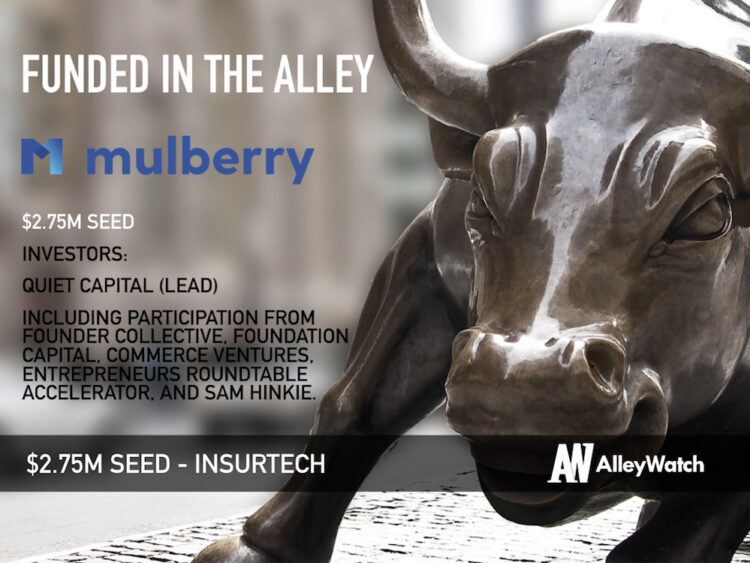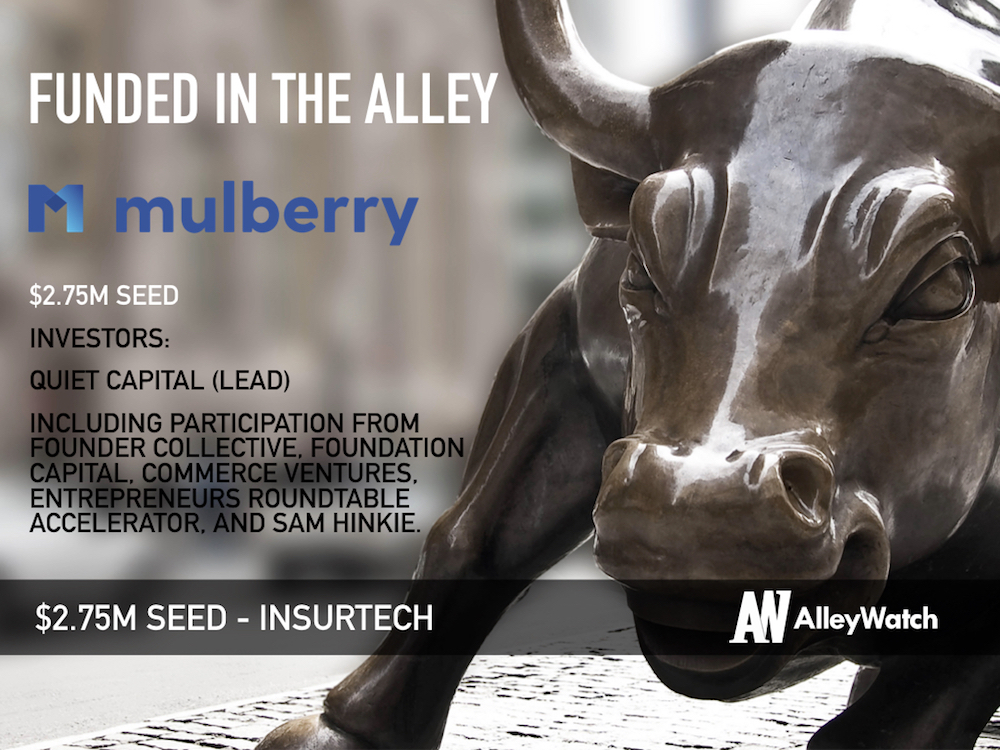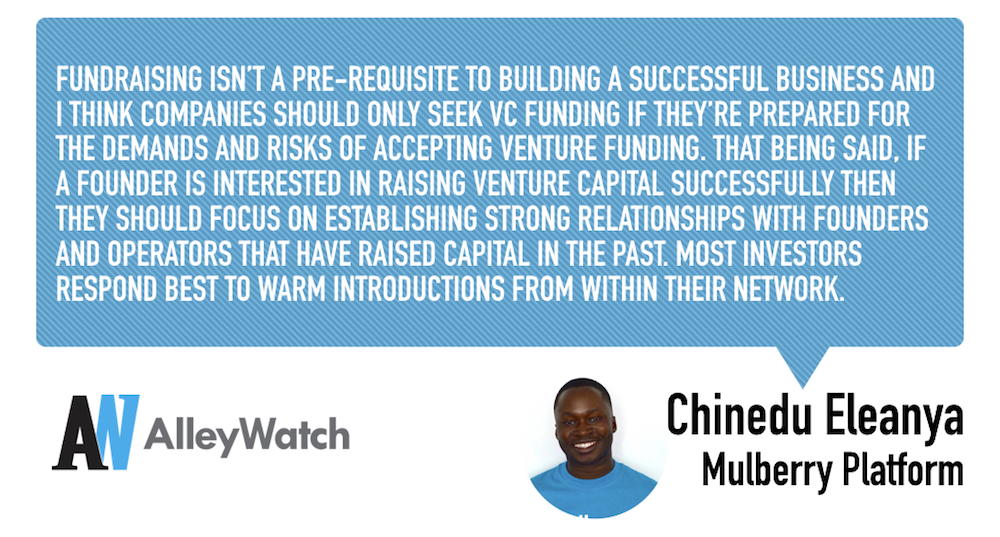It’s shocking that it can take over 6 months for retailers to launch a warranty program, but thankfully that is all about to change with the Mulberry Platform. This platform is a plug-and-play solution that enables retailers to offer low-cost product insurance. In less than an hour, e-commerce retailers can have a fully functioning warranty program. This consumer-centric platform is helping low-risk customers get the best prices on warranties while helping retailers develop a simple, straightforward warranty plan.
AlleyWatch chatted with CEO and founder Chinedu Eleanya about his company’s exciting seed round and why investors are keen to get involved in this sector of insurtech.
Who were your investors and how much did you raise?
We raised $2.75M in a heavily oversubscribed seed round. Our round was led by Quiet Capital, with participation from investors such as Founder Collective, Foundation Capital, Commerce Ventures, Entrepreneurs Roundtable Accelerator, and Sam Hinkie.
Tell us about Mulberry’s service.
Mulberry is a plug-and-play solution that allows retailers to offer low-cost product insurance with minimal technical resources. We are transforming the warranty industry with technology by reducing the time it takes for a retailer to launch a warranty program from 6+ months to less than an hour. In addition, we’re revolutionizing the consumer experience by helping low-risk customers get better prices on warranties and also by removing friction from the claims filing process.
 How are warranty claims handled on the platform?
How are warranty claims handled on the platform?
We’ve found that when consumers want real-time support when something goes wrong; so, we have a dedicated 24/7 hotline for customers to call to file a claim. In addition, we’re developing chatbots to provide support for customers that don’t want to call in.
What inspired you to start Mulberry?
I’ve spent my career focused on helping retailers generate more revenue while improving consumer experience; launching Mulberry is just an extension of that. In addition, I (like thousands of consumers) have historically had horrible experiences with warranties, and I felt that there was a clear need for a technology-focused brand to disrupt the space by offering a best-in-class and transparent consumer experience.
How is Mulberry different than other technology insurance companies?
We’re the only ones that can help e-commerce retailers launch a warranty program in less than an hour with zero technical resources. In addition, we’ve developed technology that enables us to detect low-risk customers on the retailers’ website and offer them a best-in-class pricing on warranties in real-time.
What market are you targeting and how big is it?
Our initial market is the $40B market for product warranties in the US.
What’s your business model?
On every warranty sold, we keep a portion of the sale price to cover overhead + risk costs; the rest is remitted to the retailer as pure profit.
What was the funding process like?
Fundraising for Mulberry was much easier than I’ve seen historically. It took about six weeks end-to-end to close the round. We split the time evenly between NY and SF as we wanted investors from both coasts.
What are the biggest challenges that you faced while raising capital?
The biggest challenge was determining which investors are most appropriate for our stage of business. The last time I raised seed stage capital was almost 5 years ago, and the landscape has shifted in the interim; a lot of seed stage investors have moved to Series A and beyond, so I had to spend some time figuring out the new seed ecosystem.
What factors about your business led your investors to write the check?
Our investors believe that this is a massive space that has gone ignored by both big insurers and the recent wave of insurtech startups. In addition, I’ve built a successful business in an adjacent space, which gives me the expertise needed to capitalize on the opportunity.
What are the milestones you plan to achieve in the next six months?
Within the next six months, we plan on launching on the Shopify and Magento e-commerce platforms.
What advice can you offer companies in New York that do not have a fresh injection of capital in the bank?
Fundraising isn’t a pre-requisite to building a successful business and I think companies should only seek VC funding if they’re prepared for the demands and risks of accepting venture funding. That being said, if a founder is interested in raising venture capital successfully then they should focus on establishing strong relationships with founders and operators that have raised capital in the past. Most investors respond best to warm introductions from within their network.
Where do you see the company going now over the near term?
We’re focused on creating the best warranty experience for both retailers and consumers. On the retailer side, that means making it dead simple for retailers to launch and maintain warranty programs. On the consumer, side, it means providing the best combination of price, transparency, and ease of use in the warranty industry.
What’s your favorite restaurant in the city?
Hot Kitchen, down in the east village, is my go-to spot when I’m looking for a great meal.





